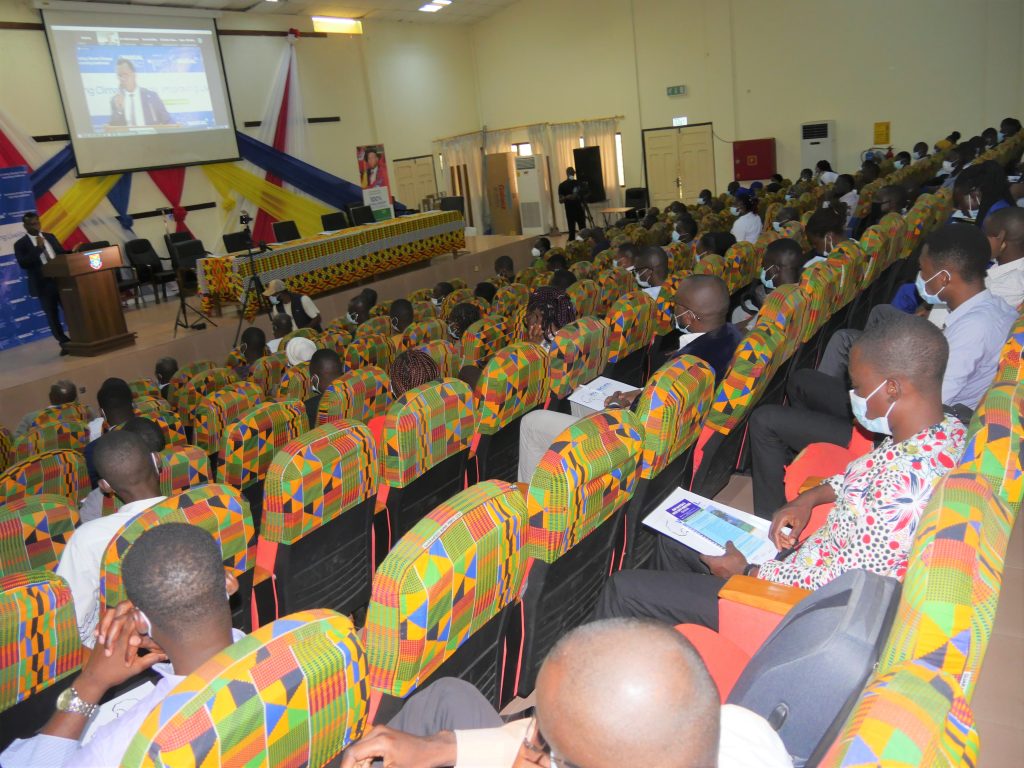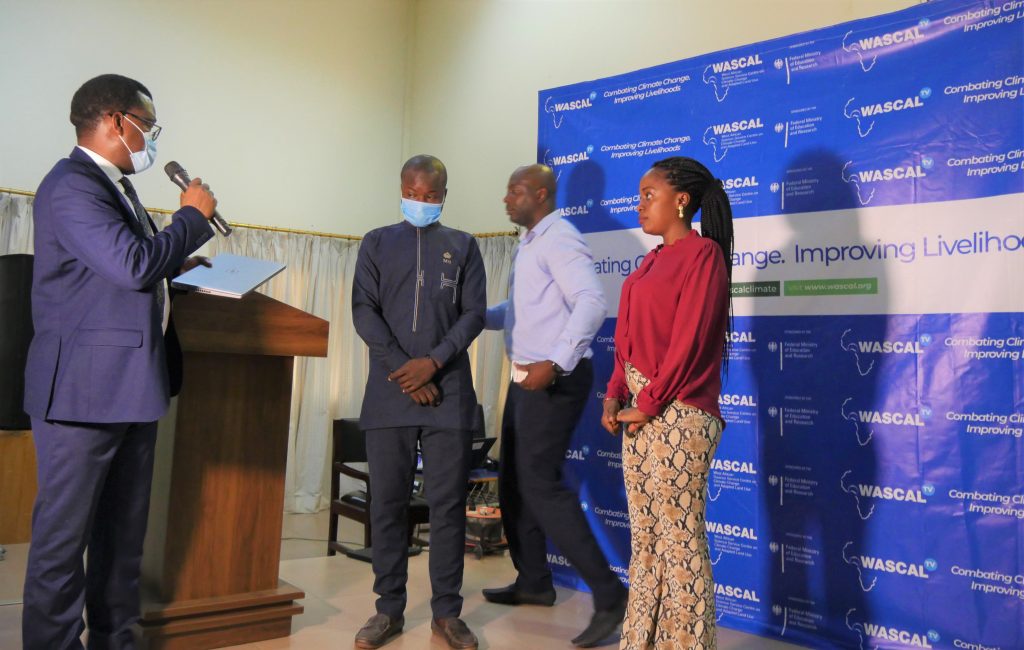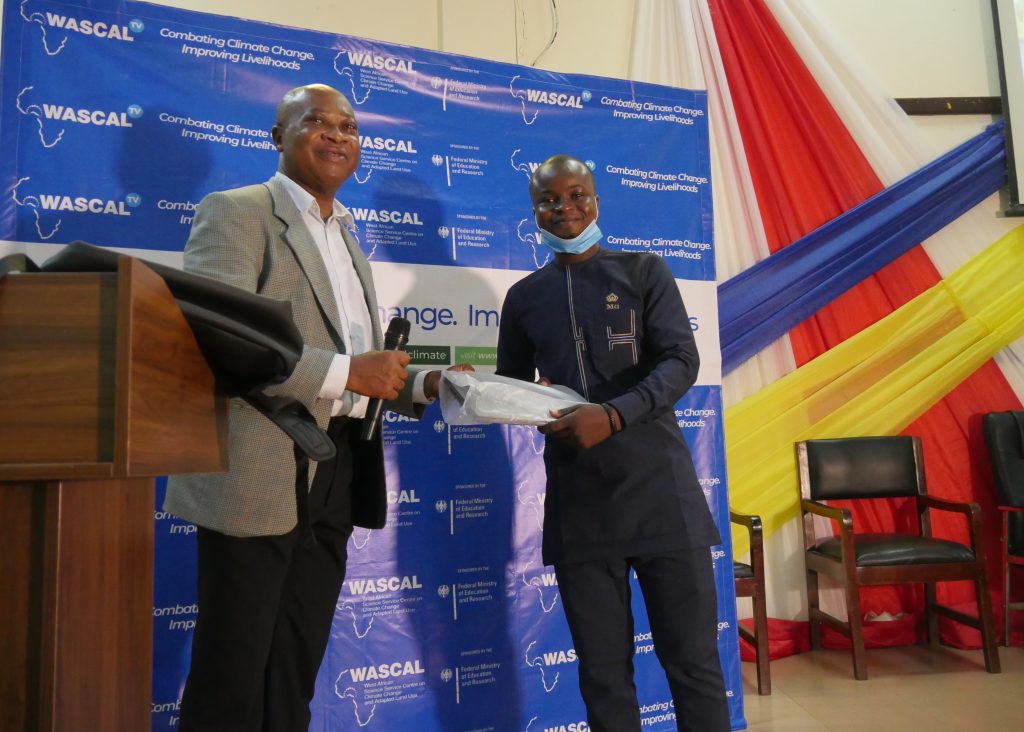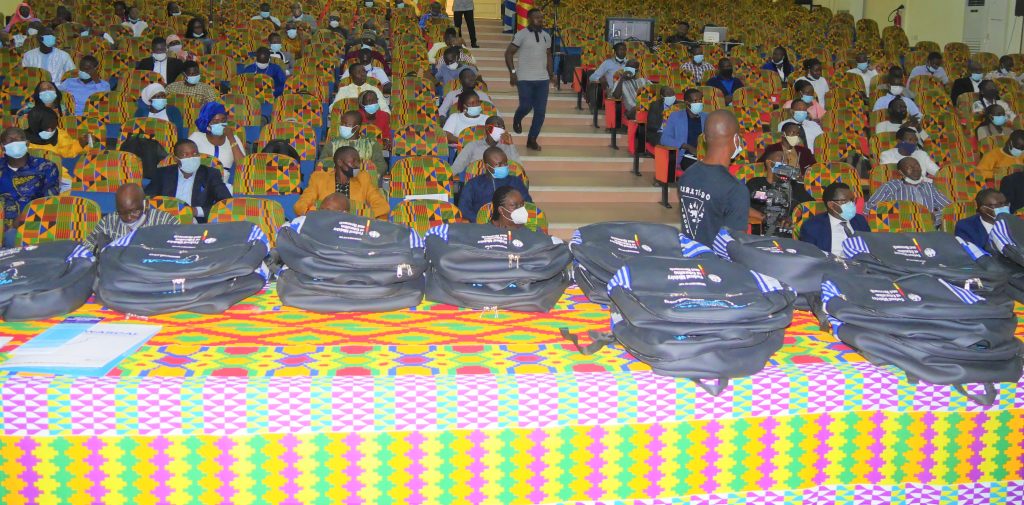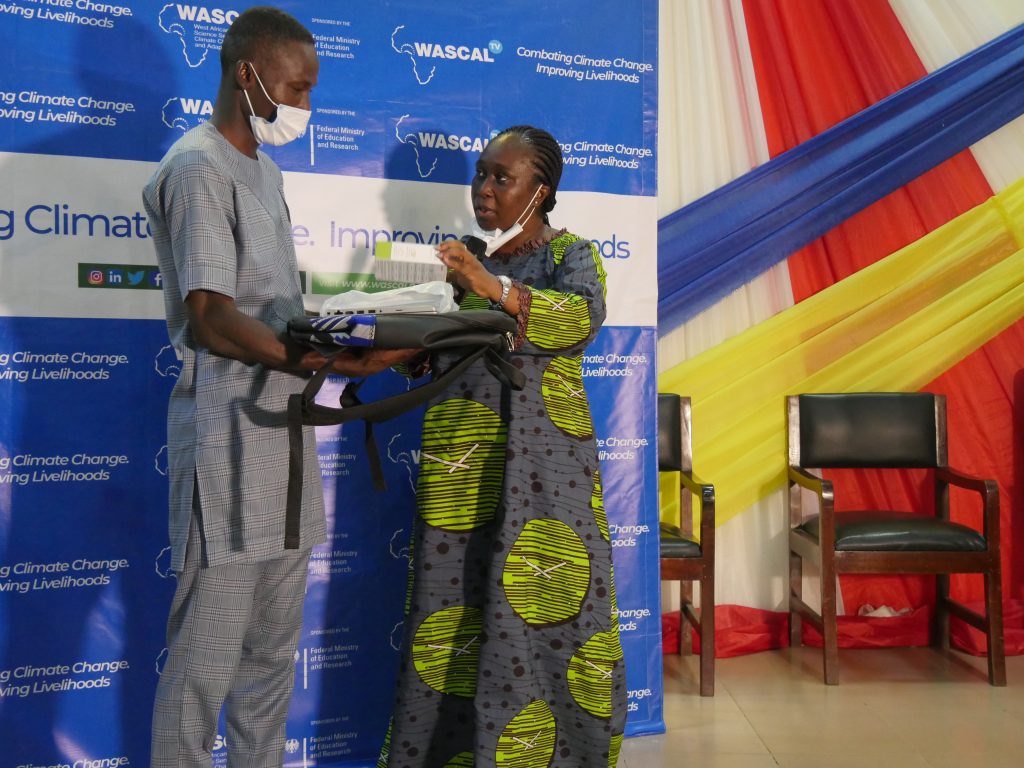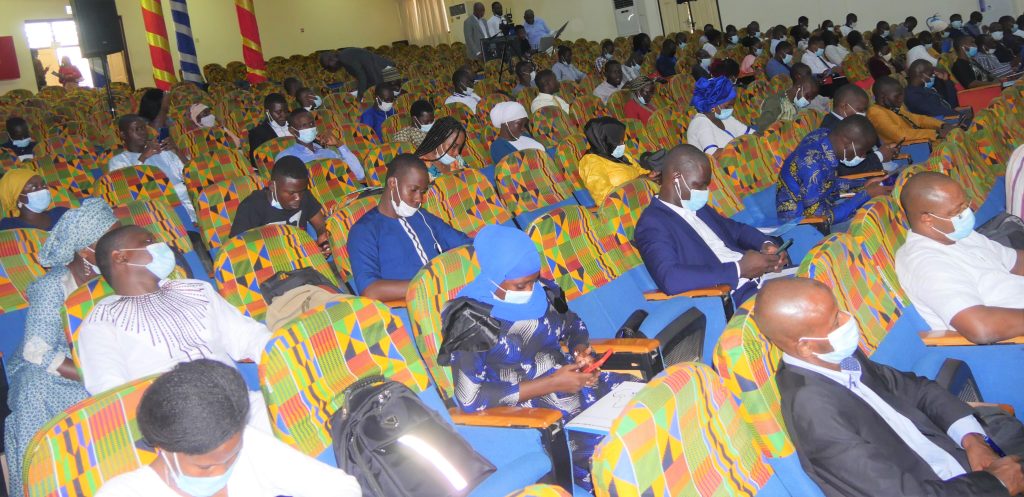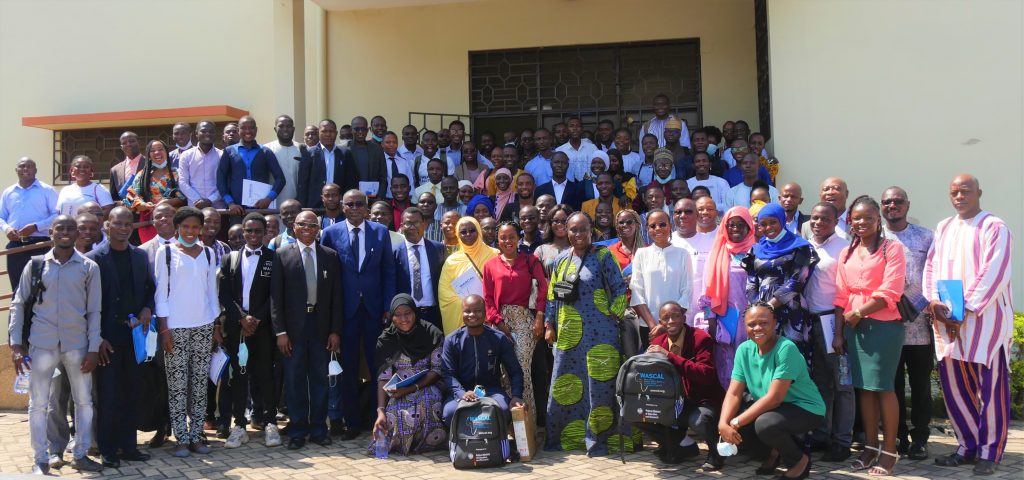
The WASCAL Capacity Building Programme has officially welcomed its 5th batch of West African scholars in Climate Change for the 2021/2022 academic year with funding from the German Federal Ministry of Education and Research (BMBF).
Speaking at the kick-off ceremony in Ghana on the University of Cape Coast campus, the director of Capacity Building Department, Prof Daouda Kone, congratulated the students and challenged them to ensure that they have become ambassadors of West Africa’s fight against Climate Change. He journeyed the students through the expectations of the programme and the criteria used to select the successful candidates.
Dr. Karsten Hess, Head of Division, Global Climate Change in Research and Biodiversity at BMBF expressed delight about the growth of the WASCAL programme and the enormity of impact made over the years through the BMBF-WASCAL partnership. He expressed confidence that the future looked bright with the quality of future scientists being trained annually. He congratulated the students and asked them to make the most of the opportunities at their disposal.
Professor Benjamin Kofi Nyarko, senior lecturer at the University of Cape Coast and WASCAL facilitator of the language proficiency, in his welcome address, emphasized the quality training the students continue to receive over the years, and called on all students to cherish the opportunity WASCAL offers.
In all, 110 doctoral students and 22 master’s students, totaling 132 students will be pursuing 12 programmes in various Climate Change areas in 11 Lead Universities in West Africa. They will have the opportunity to visit Germany as part of their academic research.
As part of their scholarship programmes, students were presented with brand new laptops, and external drives to facilitate their research works. They also underwent three months language training at the University of Cape Coast in Ghana where francophone students went through English proficiency course, and Anglophone students went through French proficiency at the University of Lomé, Togo. In attendance were the Directors responsible for the various WASCAL Graduate Studies programme.
The WASCAL Graduate Studies Programme supports and facilitates academic education amongst West African universities in association with German counterpart institutions. The activities focus on the training of doctoral and master’s students. Each of the ten doctoral programmes and two master’s programmes is autonomous and based at one lead university selected in a consultative process among the candidates’ countries. The programmes pool the scientific and educational strength of faculties in the West African region and thereby facilitate high quality research and education. A significant part of the WASCAL effort is the strengthening of this trans-national communication and capacity building.
